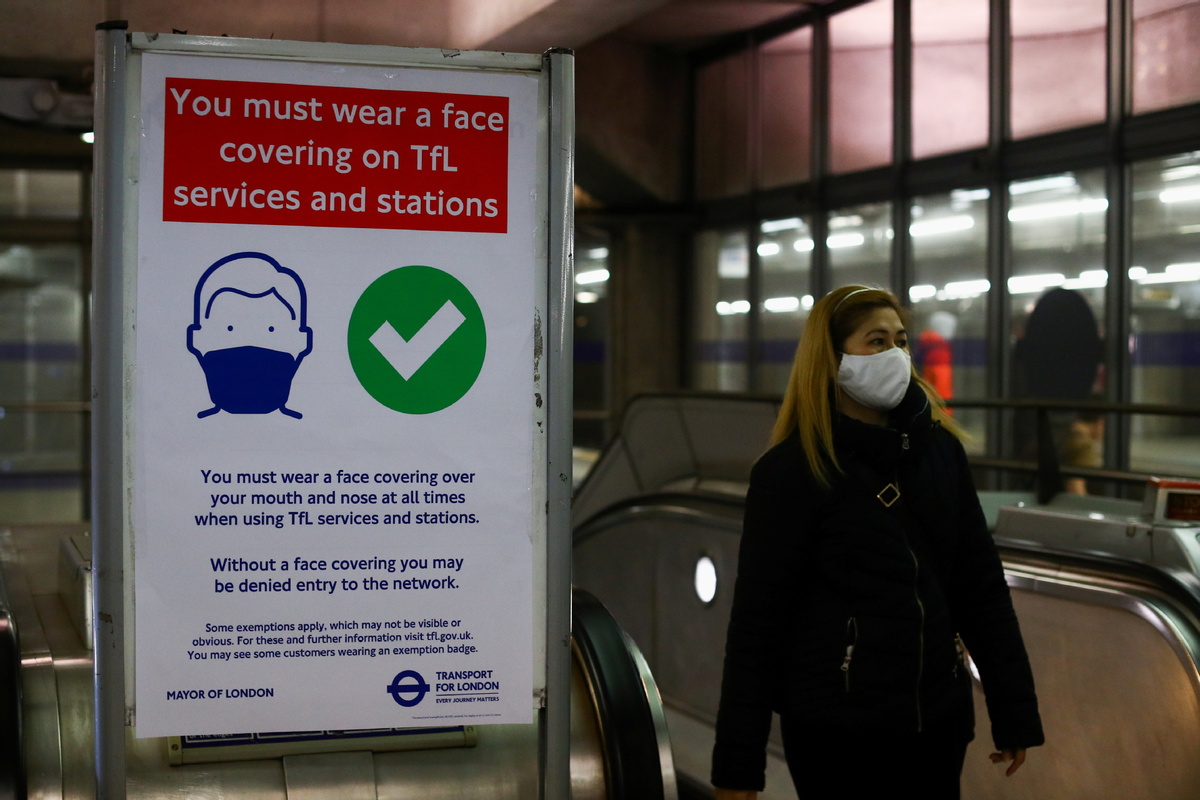UK braced for flurry of Omicron variant cases
By Earle Gale in London | chinadaily.com.cn | Updated: 2021-11-30 19:00

Variant feared to have spread in nation without having direct travel connection
The United Kingdom will detect many more cases of the Omicron variant of the novel coronavirus in the coming days, Health Minister Edward Argar predicted on Monday.
With Scotland announcing on Monday morning it had identified its first six cases of the variant and England finding its first three on Sunday, Argar said on Radio 4's Today program that more were inevitable.
"I think we've been clear since we first knew about this new variant that we would expect to see the number of cases rise," he said. "And I think what we're seeing in Scotland reflects that. That's in the nature of the virus, and the likely – not certain, but likely – increased transmissibility of this variant."
Harry Cole, The Sun newspaper's political editor, wrote on Monday that high-level government sources had told him the UK was monitoring 75 "probable" cases of the worrying variant, and that there were likely at least 150 more.
The Omicron variant, which was first identified last week, in South Africa, is causing concern because early indications suggest it may be far more transmissible than earlier versions of the virus that causes COVID-19 disease, and because vaccines may not be as effective against it. Additionally, it looks as if the variant is adept at re-infecting people who have previously recovered from COVID-19.
The UK introduced travel restrictions and compulsory mask-wearing in shops and on public transport in the wake of the variant's discovery, but London is walking a difficult path, between protecting the public and angering anti-restriction elements within the ruling Conservative Party.
Steve Baker, a Conservative Party lawmaker who is deputy chairman of a right-wing group of anti-restriction lawmakers, known as the Covid Recovery Group, told The Telegraph newspaper he believes London went too far when it said the close contacts of people who test positive for the variant must isolate for 10 days. He said that will "cause chaos, including collateral harms, like damage to children's education".
"The government needs to explain when all of this will be brought to an end," he added.
But Sky News noted that the reintroduction of restrictions looked to have been justified when some of those with the variant identified in Scotland were found not to have traveled abroad, suggesting the mutated virus is already spreading within the UK.
Scotland's deputy first minister, John Swinney, told the BBC: "There must be a degree of community transmission of this particular strain of the virus, in the absence of a direct travel connection, for some of the cases, in the southern African area."
Sky News quoted Scotland's health secretary, Humza Yousaf, as saying there was "still much to learn" about the Omicron variant; including the severity of the illness it causes, its degree of transmissibility, and the way it responds to treatments and vaccines.
"Until more is known, we must be cautious and do everything we can to minimize the risk of spreading infection," she said.
With tests continuing on the efficacy of existing vaccines and results due in two to three weeks, the UK's vaccine advisory body said on Monday it supported an expansion of the nation's booster program.
Anthony Harnden, deputy chairman of the Joint Committee on Vaccination and Immunization, told the BBC it was "sensible" to cut the time between second and third doses, and for people younger than 40 to be offered boosters, in addition to those older than 40, who already are.
The Financial Times noted that uncertainty about the variant triggered a sell-off of European stocks late last week. But it said stocks advanced again on Monday, as investors "settled in for a prolonged period of uncertainty over the pandemic".
























